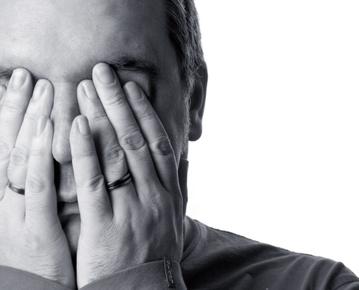Intrusive Thoughts & “Bad Thoughts” in OCD / Obsessive Compulsive Disorder
An International study of university students, who had not been diagnosed with OCD, conducted in 13 countries and across 6 continents found that nearly all of the participants (93.6%) experienced unwanted thoughts. The study was published in 2014 by the Journal of Obsessive-Compulsive and Related Disorders (JOCRD). Most of the unwanted thoughts of the participants consisted of doubt, aggression and contamination.
 The study confirms that we all, from time to time, experience strange unwanted thoughts. For instance, we might have a thought about pushing another person into oncoming traffic and then tell ourselves what a silly, peculiar thing to think and go on about our day. However, for those who suffer with OCD, these types of thoughts take on a great deal of meaning. Often the OCD suffer will worry a great deal about the fact that they had the thought and wonder what the thought might mean, or why they would think this and will they “snap” and actually do it?
The study confirms that we all, from time to time, experience strange unwanted thoughts. For instance, we might have a thought about pushing another person into oncoming traffic and then tell ourselves what a silly, peculiar thing to think and go on about our day. However, for those who suffer with OCD, these types of thoughts take on a great deal of meaning. Often the OCD suffer will worry a great deal about the fact that they had the thought and wonder what the thought might mean, or why they would think this and will they “snap” and actually do it?
It’s important to note that it is not the thoughts themselves that cause anxiety. As the study confirmed, we all have strange thoughts from time to time. It is the views the individual with OCD takes of the thoughts that cause anxiety, as those suffering with OCD tend to think, “If I thought this, then it must be real, or mean something”.
Often, this type of OCD is referred to as “Pure O”, indicating that this is a type of OCD without compulsions. This is actually quite incorrect. The compulsions in this type of OCD or “Pure O” are simply what is referred to as “covert compulsions” or “mental compulsions”, which means that the compulsions are not as easily observed as for example, with someone who repeatedly washes his hands to remove contaminants.
Mental compulsions may include:
- Praying or chanting phrases to neutralize thoughts that are bad, sinful or immoral
- Repeatedly asking for reassurance that you have not or will not commit the act that is considered bad or wrong
- Performing certain behaviors to make sure bad things don’t happen (e.g. knocking on wood, touching the Bible, counting)
- Confessing to others that you have had bad thoughts
- Mentally reviewing and replaying situations to make sure that you haven’t done anything unacceptable
- Avoiding situations where the unwanted thought might occur
- Checking your body for physical signs to make sure you’re not attracted to someone you consider inappropriate
OCD can cause people who suffer with the disorder to have some bizarre and strange thoughts, but it is not the thoughts or the anxiety that is experienced from the thoughts that cause the real problem. The root of the problem with all types of OCD is the compulsive acts that the individual carries out in an attempt to reduce anxiety. At first, compulsions offer immediate relief from anxiety, but this relief is brief. What starts out as a solution to handle anxiety caused by intrusive thoughts, eventually becomes the problem itself. Compulsions usually begin lasting only minutes, but can end up taking many hours each day.
It is often said that mental obsessions and compulsions are more difficult to treat than other types of OCD. This is not true. If proper Exposure and Response Prevention (ERP) techniques are used, “Pure O” can be treated successfully. With the right kind of treatment, you can recover and reclaim control of your life.
OCD therapists at GroundWork have specialized training utilizing evidence-based treatment approaches for the treatment of OCD in children and adults through The International OCD Foundation’s BTTI institute. We understand the importance of selecting effective OCD treatment for yourself or your child. Our OCD specialists (Marion Rodrigue – Adult OCD Treatment) (Courtney Rodrigue Hubscher – Child OCD Treatment) would be happy to speak with you via phone prior to setting up the initial appointment to answer your questions, and further discuss their treatment methods and training in ERP/CBT, so that you are confident you will be receiving effective treatment for your OCD.
Important Questions To Ask Any OCD Treatment Provider
Information About Insurance and OCD Treatment
If you would like to learn more about effective Cognitive Behavioral Therapy (CBT) and ERP for the treatment of OCD, mental obsessions, “Pure O” and other anxiety disorders, please visit:

Ready To Make A Change?
GroundWork is proud to offer both in-person and virtual Telehealth appointments to clients located in Florida.




















